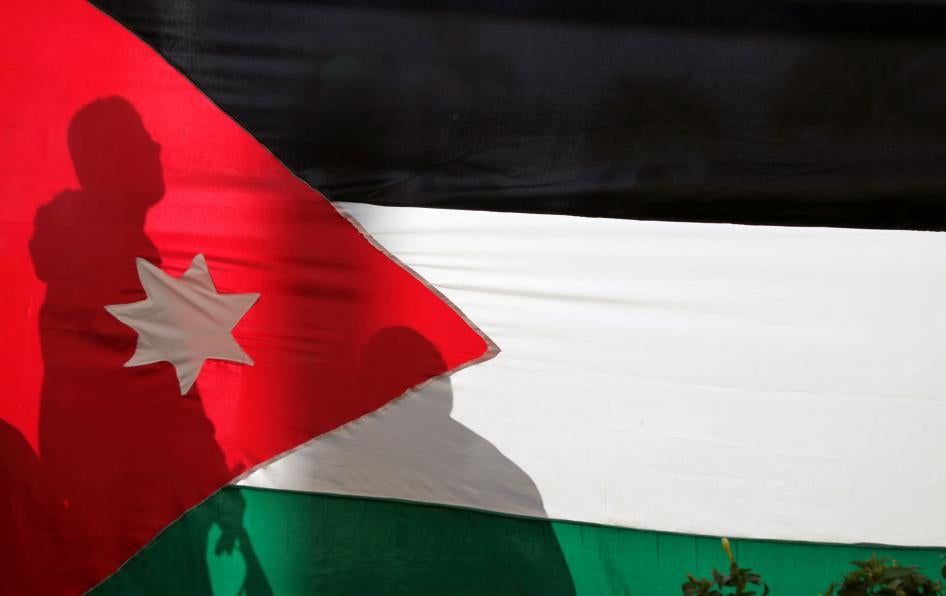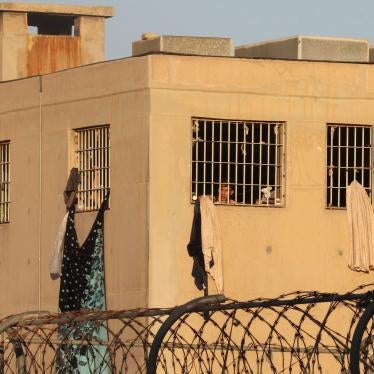On July 12, Jordan's infamous State Security Court, which routinely runs roughshod over defendants' due process rights, convicted a former high-level official and a little-known royal family member of "sowing discord" and "inciting opposition to the political regime," sentencing both of them to 15 years in prison. The lightning-quick, equally roughshod trial, with seven sessions over just three weeks, may have ended a perceived threat to Jordan's monarchy, but it will do little to assure Jordanians that the rule of law is respected and applied equally in the Hashemite Kingdom.
The State Security Court prosecutor alleged that the two convicted men, Bassem Awadallah and Sharif Hassan bin Zaid, conspired with Prince Hamzah bin al-Hussein, King Abdullah II's younger half-brother, to carry out a vaguely detailed plot to "mobilize public opinion against the ruling regime in the kingdom and propose Prince Hamzah as an alternative to take rule," according to the court documents.
The prosecutor never charged Prince Hamzah himself, and no news about his situation has emerged since he was last seen in official photos and videos on April 11 accompanying family members to the royal mausoleum complex in Amman. Instead, the Jordanian royal court released an open letter "to the people of Jordan" from King Abdullah on April 7, stating that Hamzah was "with his family, at his palace, in my care."
I have attended numerous trials at the State Security Court since 2013, which is used primarily for crimes involving terrorism and drugs; I've met with various court officials and reviewed dozens of court documents. The court itself is a military institution with a mix of military and civilian judges, but the court leaders and prosecutors are all military officials, while the defendants are all civilians. Trials there are often unfair, and this one was no exception.
Awadallah—who served as head of Jordan's royal court from 2007 to 2008 and then as Jordanian King Abdullah's special envoy to Saudi Arabia, and later went on to become an economic adviser to Saudi Crown Prince Mohammed bin Salman—is a controversial figure in Jordan. Awadallah holds U.S., Jordanian and Saudi citizenship.
It is depressing but unsurprising that prosecutors charged Awadallah and bin Zaid with the same vague and abusive charges that Jordan uses to silence political activists—charges that Human Rights Watch has criticized for years. Both "sowing discord" and "subverting opposition to the political regime or inciting opposition to it" are terrorism-related charges but are rarely applied to acts that could reasonably be thought of as "terrorism." In fact, the two charges are so vague that they can be applied to nearly any political speech or behavior that the authorities dislike, and often are.
When Jordanian authorities inserted this language into the kingdom's terrorism law in 2014, Human Rights Watch warned that if the authorities did not further define these vague offenses, the law could be used to prosecute peaceful expression or assembly as terrorism. That has repeatedly been the case over the past seven years.
During the swift, three-week trial, the State Security Court also summarily refused to hear testimony from all of the witnesses the defense requested, including Prince Hamzah. The defense lawyer told a media outlet that the court determined that the witnesses were "irrelevant to the case."
Beyond court procedures, the authorities made almost no attempt to pretend the trial process was legitimate. They leaked selective details to the local media, including degrading videos and photos of the defendants entering the back door of the court in east Amman in handcuffs and prison clothes, as well as a copy of Awadallah's written "confession," in which he admitted to hosting meetings with Prince Hamzah and bin Zaid to discuss the alleged plot.
But meanwhile, the government has done nothing to address the economic and political conditions that gave rise to the "conspiracy" in question, the very conditions Jordanian prosecutors argue that the "plotters" were trying to exploit.
The COVID-19 pandemic has battered Jordan's economy. The World Bank stated in April that the "country's major economic indicators continue to deteriorate," including increasing deficits and rising unemployment. Thousands of Jordanians end up in prison each year solely for failing to repay their loans, so many that authorities recently were forced to suspend the practice of debt imprisonment until the end of 2021.
At the same time, Jordanians are facing further degradation of other basic rights, including free expression and assembly. The government has curtailed media freedoms and independent political activism. The most dramatic incident over the past year was the closure of the 130,000-member Teachers' Syndicate, which was the largest independent trade union in Jordan, in mid-2020 and subsequent unfair trial of former syndicate leaders. The trial, which resulted in a one-year prison sentence for the syndicate's former board members, was based entirely on its publication of a plan to pressure the government not to renege on an agreement reached in 2019 on teacher salary increases following a month-long teachers' strike.
Unlike the alleged "plot" by Awadallah, bin Zaid and Prince Hamzah, the Jordanian authorities cannot solve economic and other human rights deficits through arrests and sham trials. To confront Jordan's challenges, the authorities should forgo the authoritarian tools on which they so often rely, and instead strengthen fundamental freedoms and respect the rule of law through the judicial system and state institutions more generally. Unfortunately, the "sedition" trial did none of these things; it was just more of the same failed, hard-line tactics that have created another opening for instability in the kingdom.









